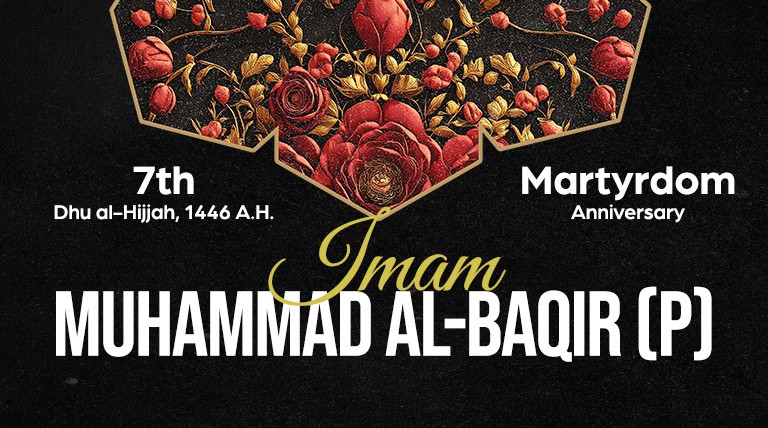Martyrdom Anniversary of Imam Muhammad al-Baqir (p) 1446 A.H.

Tuesday, June 3rd, 2025, is the 7th of Dhu al-Hijjah, 1446 A.H. which marks the martyrdom anniversary of Imam Muhammad al-Baqir (p)
The Tongue Is a Weapon
In an age where a single comment can go viral in seconds, and a thoughtless word can spark outrage or pain, the wisdom of Imam Muhammad al-Baqir (p) feels strikingly prophetic. He once said, “The weapon of the wicked person is foul language” [Bihar al-Anwar, vol. 75, p. 185]. This is reminder that speech is not neutral. It carries the power to either heal or harm.
When Imam al-Baqir (p) describes foul language as the “weapon of the wicked,” he’s not just condemning vulgarity — he’s exposing a deeper spiritual truth: that harsh words are often used as tools of harm, especially by those who lack moral strength or intellectual integrity. Just as a weapon inflicts physical harm, foul language wounds the soul. It breaks hearts, breeds resentment, and reflects inner corruption. Imam al-Baqir(p) is warning us that the tongue can be a tool of justice or a sword of injustice.
This hadith encourages us to reflect on how we use our words—not just in public, but also in private, online, and during moments of frustration. Foul language is not only about profanity. It includes sarcasm meant to hurt, harsh criticism, backbiting, and even passive-aggressive “honesty.” Imam al-Baqir (p) exposes a difficult truth: people who lean on such speech often do so out of weakness, not strength. In honor of his martyrdom, we can embody his teachings by practicing restraint when emotions rise, choosing words that heal rather than harm, modeling respectful speech for our children, and incorporating verbal discipline into our spiritual routine—just as we do with prayer.

Leave a Comment:
You must be logged in to post a comment.